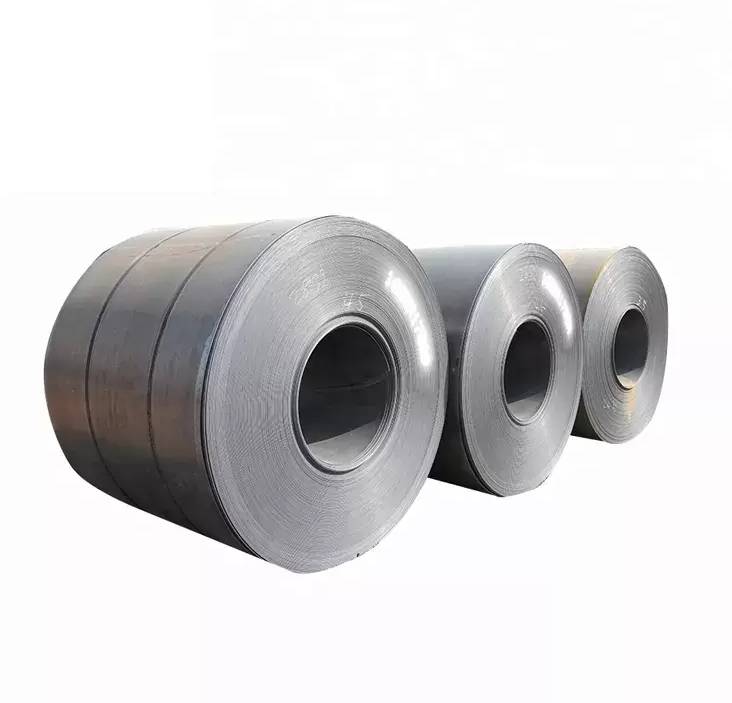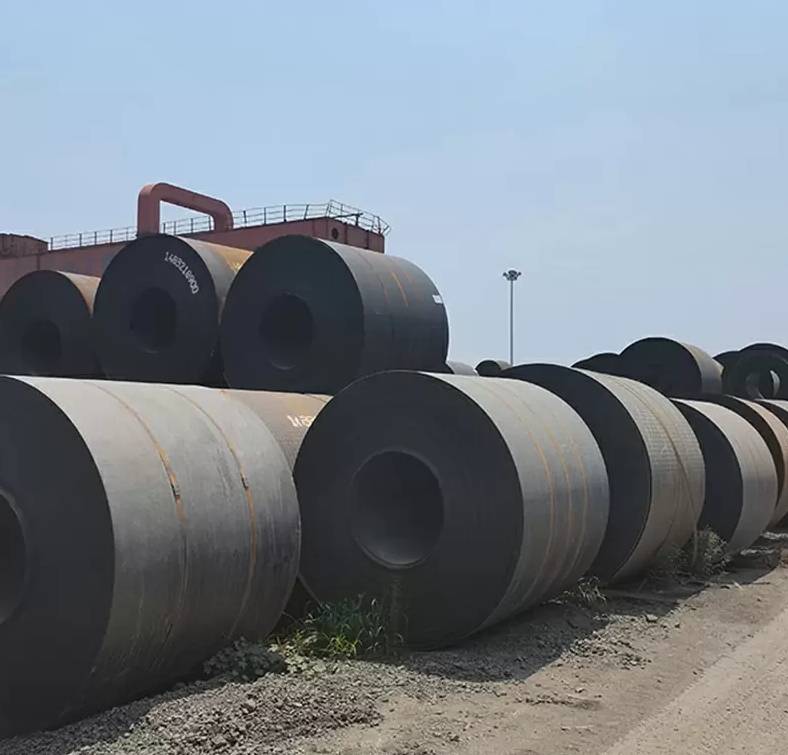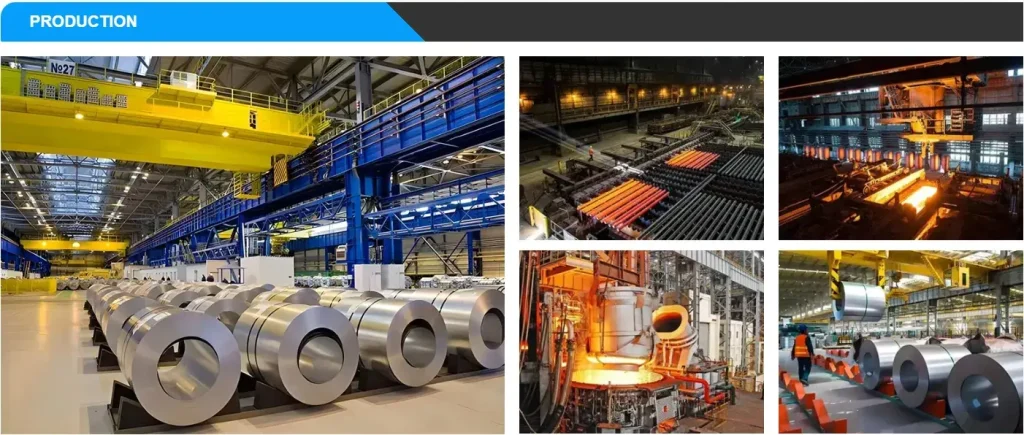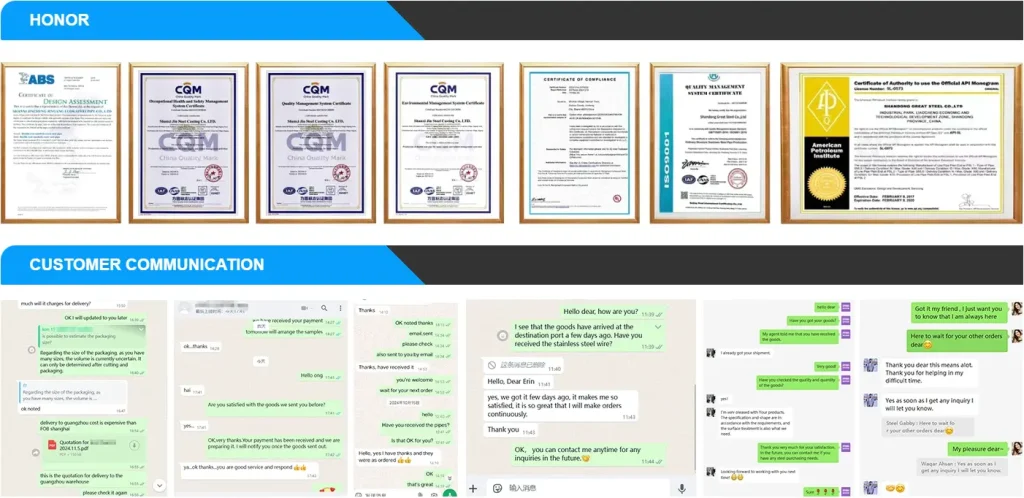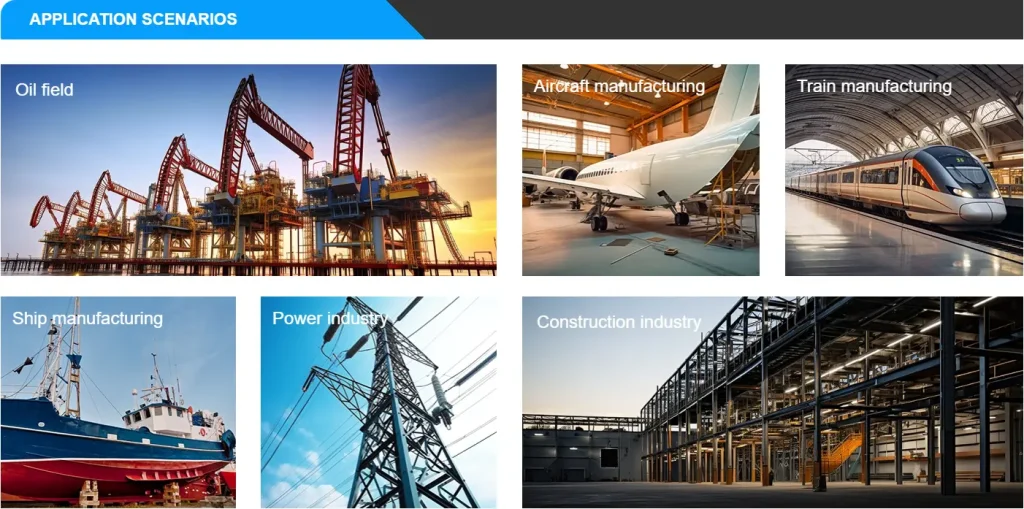Specification – Quick Overview
-
Grades: Q235A/B/C, Q275B/C/D, Q195A/B, Q345A/B, A36, A283, and more
-
Thickness: 0.3 mm – 150 mm
-
Lengths: 2 000 mm, 2 438 mm, 6 069 mm (or custom)
-
Widths: 1 000 mm, 1 250 mm, 1 500 mm, 1 800 mm (or custom)
-
Processes: Cold‑rolled or hot‑rolled
-
Standards: ASTM, GB, JIS, AISI, EN
-
Certifications: ISO 9001, SGS, BV
What Is Carbon Steel Plate?
Carbon steel plates/sheets are flat metal products made mainly of iron and carbon. They’re widely used in construction, manufacturing, automotive, energy, machinery, home appliances, and more.
Classification by Carbon Content
Steel is categorized by its carbon level, which affects strength, flexibility, and wear resistance:
-
Low-Carbon (≤ 0.30 %) – Also called mild steel. Soft, easy to shape, ideal for structures, pipes, auto parts.
-
Medium-Carbon (0.30–0.60 %) – Stronger yet still workable; used for gears, shafts, machine parts.
-
High-Carbon (> 0.60 %) – Very hard and wear-resistant; used for tools, springs, blades.
Production & Surface Finishing
To prepare for use, plates go through these steps:
-
Cutting: Laser, plasma, or flame methods for precise shapes
-
Forming: Bending, stamping, welding into structures
-
Heat treatment: Annealing, quenching, tempering to adjust hardness and toughness
-
Surface treatment:
-
Pickling – Removes rust and scale
-
Coatings – Paint, galvanizing, chrome plating to prevent corrosion
-
Rust prevention – Oil or sealants to prolong lifespan
-
Benefits of Carbon Steel Plates
-
High strength & toughness: Great for load-bearing and impact resistance
-
Easy to process: Can be cut, bent, welded, and formed with ease
-
Cost-effective: Cheaper than many alloys, making it ideal for mass production
-
Excellent weldability: Compatible with various welding techniques
-
Wear resistance: Especially high-carbon varieties are excellent in harsh conditions
Common Uses
-
Construction: Beams, columns, plates, pipes in buildings and infrastructure
-
Automotive: Car bodies, chassis, engine parts, wheels
-
Manufacturing: Equipment frames, machine components, tool racks
-
Oil & gas: Pipelines, pressure vessels, storage tanks
-
Shipbuilding: Hulls and structural elements
-
Energy plants: Boilers, heat exchangers in power stations
-
Home appliances: Refrigerators, washing machines, casing parts
Summary
Carbon steel plates offer a simple, tough, and affordable solution for many industries. Their core advantage lies in balancing strength, flexibility, and cost—making them indispensable in construction, machinery, transportation, and more.


